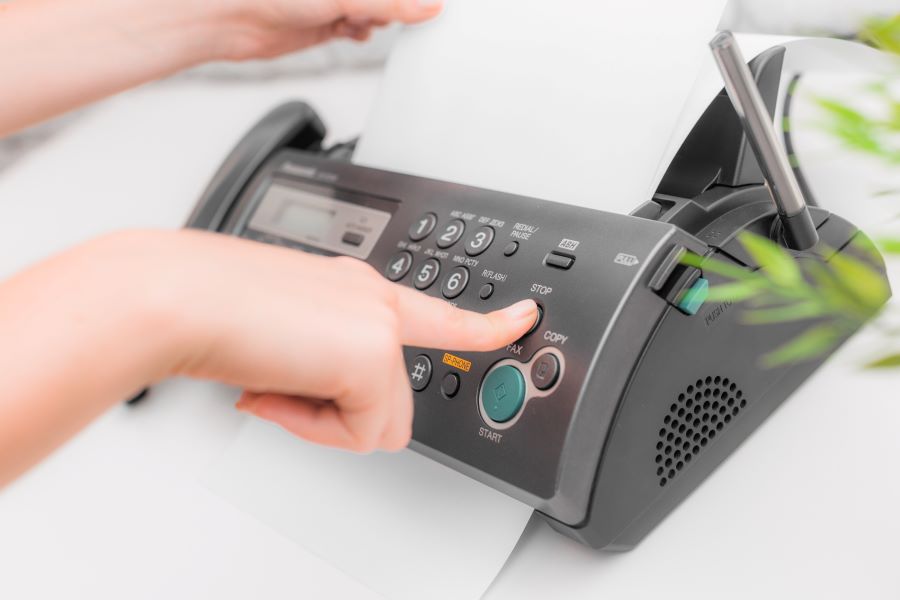While regulations relating to voice calls and text messages may get all the headlines these days, the Telephone Consumer Protection Act (TCPA) does still regulate facsimile machines messages as well. In fact, when the TCPA first became law in 1991, junk faxes were one of the primary concerns for legislators. Additionally, an early Federal Communications Commission (FCC) TCPA rule focused on preventing the practice of war dialing, which involved dialing mass amounts o numbers to determine which ones were connected to fax machines.
30 years after the passage of the TCPA, fax machines might not be used as often as they once were but faxes remain a source of TCPA litigation. Here are some notable TCPA fax cases from this year.
Gorss Motels, Inc. v. FCC
This decision by the Second Circuit affirms a 2017 D.C. Circuit ruling repealing the Solicited Fax Rule. In 2006, the FCC enacted a rule requiring senders of faxes to include clear and conspicuous statements informing the recipient of their right to opt out of receiving faxes in the future. This rule applied to unsolicited faxes as well as faxes for which the sender had acquired prior express consent. The FCC claimed the authority to enact this rule came from the Junk Fax Prevention Act of 2006, which amended the TCPA’s fax rules. In 2017, the D.C. Circuit ruled in Bais Yaakov of Spring Valley v. FCC that the FCC did not have the authority to regulate solicited faxes under the 2005 law, only unsolicited faxes. The Second Circuit’s recent decision in Gorss finds that the D.C. Circuit’s decision was correct and should apply to cases within the Second Circuit’s jurisdiction.
Bruce E. Katz, M.D., P.C. d/b/a Juva Skin and Laser Center v. Focus Forward LLC
In this case, the plaintiff received two faxes from the defendant that the plaintiff contended were unsolicited advertisements and, thus, violations of the TCPA. The defendant is a firm that conducts market research for its clients and sent the faxes at issue as part of an effort to solicit participants for market studies, offering a $150 honorarium for doing so. The district court found that these faxes do not constitute advertisements, dismissing the case with prejudice. The judge in the case wrote that the allegedly TCPA-violating faxes “do not offer to sell anything to the recipients, nor do they promote the quality of Defendant’s market research services.”
BPP v. CaremarkPCS Health, L.L.C. d/b/a CVS Caremark and WellTok, Inc.
The defendant in this case is a pharmacy benefit manager that provides information to prescribing doctors about insurance coverage relative to specific medications. The plaintiff in this case is one such prescribing doctor. He received a fax from the defendant regarding “new supply limits on coverage for opioid prescriptions for certain pediatric and adolescent patients covered by plans sponsored by Caremark clients.” The plaintiff sued, alleging that this was an unsolicited fax advertisement in violation of the TCPA. The defendant moved for summary judgment, arguing that it was not an advertisement and merely an informational message, which would be allowed under the TCPA. The judge agreed and granted summary judgment to the defendant.
Gorss Motels v. Brigadoon Fitness
This is the same plaintiff as the first case. Unlike that case, however, they were successful in their TCPA fax lawsuit—to a degree. The plaintiff is a hotel franchisee and the defendant is a company that sells fitness equipment. The defendant had an affiliation with the franchisor. The plaintiff received a fax advertising fitness equipment and sued under the TCPA’s fax rules. The defendant argued that the fax was not unsolicited due to an agreement with the franchisor. Eventually, after five years of litigation, the district court ultimately sided with the plaintiff—for $500. A lot of work for a very small payout.
